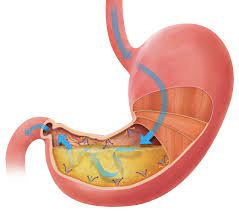Bloated and no idea why? Here are 6 reasons why this might be happening
- Dr. Steph Matte ND
- Nov 16, 2022
- 6 min read
Updated: Nov 16, 2022
Bloating is a lot more complicated than we think it is. For most people who are bloated on a daily basis, it isn't just uncomfortable, it affects one's self esteem and daily functions. Why can some people eat the same foods, drink the same things and basically do everything you are doing but end up with no bloating? I wish I had just one answer. Sadly, I don't think the next fad social media trend about a new juice is going to cure you and probably won't address the reason why you've been bloated and uncomfortable for this long. If you've come across this blog, it's probably because you've tried a lot of those solutions and haven't found an answer yet.
What is bloating?
It is a symptom, not a condition, where the abdomen feels distended and protruded. Bloating causes you to feel a sensation of tightness and fullness in the abdomen, almost like it's filling up with air or gas. Although there are many common reasons for bloating such as eating too much food in one sitting, or eating junk food, this is not what this blog is going to digress about. I want to address some underlying concerns that might spark a new pathway on your health journey, or that might be worth looking at in more depth with a Naturopathic Doctor or General Practitioner.
1. Low stomach acid - AKA. Hypochlorhydria

Stomach acid is produced by certain cells in our stomach and production is stimulated by the food we eat entering the stomach. It is the hydrochloric acid (or HCl) that allows for the breakdown of our food, most importantly protein. This process allows our small intestine (SI) to absorb nutrients for our body to use. When we don't have enough stomach acid, our SI cannot absorb these larger molecules and instead leaves them to be fermented by our gut bacteria. The process of fermentation by these bacteria creates gas, which means bloating in our abdomen. The more undigested food that we give the gut bacteria, the more the they proliferate and grow. In turn, more bacteria = more gas.
Why do some people have low stomach acid? High stress, a diet of low protein in childhood (ex. diet of mostly carbs, processed foods and little meat), genetics, reduced tonicity of lower esophageal sphincter (LES) causing acid reflux with not enough production, and more
What are other symptoms and sequelae that can be found as a result of low stomach acid? Foul smelling gas due to bacteria fermentation releasing sulphur and other smelly compounds, acid reflux/GERD, low vitamin B12 and iron absorption, overgrowth of bad bacteria, overgrowth of yeast (ex. candida), constipation/diarrhea, stomach/abdominal pain, and more.
2. Dysbiosis, SIBO & Candida

Dysbiosis is an imbalance in the microbiome that makes up your digestive tract. When there is a disruption in the gut microbiota, it allows for pathogenic bacteria and yeasts to grow. Small intestine bacterial overgrowth (SIBO), has been shown to be the cause of >60% of IBS diagnoses. This is where bacteria overgrows from the large intestine (LI) and into the SI where it decreases nutrient absorption into our bodies. Candida is a pathogenic yeast when it overgrows. When there is a disruption of our balanced flora, Candida takes this opportunity to grow. This leads to more disruption and an increase in the symptoms mentioned below.
Why do some people have dysbiosis in their gut? Low stomach acid (bad bacteria not killed by HCl), history of antibiotic use (kills all flora including the good), long-term use of proton pump inhibitors (PPI), high stress, constipation or slow gut motility, a diet high in sugar/carbs, being immune-compromised (increased inflammation from the immune response in the body disrupts our ability to kill pathogenic bacteria), and more.
What are other symptoms and sequelae of SIBO/Candida overgrowth? Sugar/carb cravings, yeast infections of the vaginal tract, oral thrush, vitamin and mineral deficiencies (such as iron, B12, A, D, E, K, and calcium), cognitive decline, anemia, weakness, fatigue, weight gain or loss, nausea and/or vomiting, constipation, diarrhea (or both), joint pain, rashes, acne, eczema, asthma, mood disorders (such as depression), rosacea, and more.
3. Leaky inflamed gut & food sensitivities

Leaky gut, also known as intestinal permeability, is the ability of molecules in teh GI tract to pass through tight junctions of intestinal cells. This often occurs through infection and other inflammatory processes. With leaky gut, you'll experience reactivity to certain foods that you don't normally react to, due to your immune system now sensing this foreign substance outside of the GI tract in the bloodstream. Food sensitivities are not like allergies, and are mediated by a different part of your immune system. Consuming the offending foods will end up causing the intestinal lining to become more leaky, which in turn will result in reactions to even more foods that never caused symptoms before. Because the inflammatory response is considered delayed and low grade, it is often very difficult to figure out the offending cause.
Why do some people get leaky gut or food sensitivities? A chronic unhealthy diet causing a toxic overload, diet high in refined sugar, high amounts of gluten in grains and conventional pasteurized cow's milk, chronic stress (both the stress in your mind and the stress you put on your body) lowered immunity, dysbiosis (see above for factors leading to dysbiosis), candida overgrowth, antibiotic use, and more.
What are other symptoms and sequelae of leaky gut and food sensitivities? Anxiety, depression, insomnia, diarrhea, constipation, gas, heartburn, eczema, psoriasis, acne, hives, increased allergies, headache, fatigue, brain fog, weight gain, joint pain, and more.
4. Sluggish Liver and Gallbladder

Your entire digestive system and all its organs work together to help make sure your food is digested, and that you are taking up all of the nutrients it supplies. Many forget how important your liver and gallbladder are in digesting food, especially the food you eat that is high in fat. If you find yourself getting bloated after eating foods like nuts, seeds, avocado, cheese, cheesecake or fried foods, then you might have a sluggish gallbladder or liver, lacking in bile production or storage. Bile is produced by the liver and stored in your gallbladder and helps digest fats. If either of these organs are lacking in their function, there is inadequate bile produced for the meal just eaten.
Why do some people have a sluggish liver or gallbladder? Genetic predisposition, lack of high fat diet in early life (now organs are underproducing), history of gallstones, gall bladder removed, cholecystitis (inflammation of gall bladder), fatty liver, past medication overdose, overweight, female, age 40+ (but still common in young people too!), history of birth control use, pregnancy, diet of highly processed foods, and more.
What are other symptoms and sequelae of sluggish liver/gallbladder? Abdominal pain in upper right side after meal, pain that radiates to your right shoulder or back area, greasy loose stools that stain the bowl (looks oily), stool that floats, bacterial overgrowth, leaky gut, nausea, fatigue, decreased absorption of fat soluble vitamins (vitamin A,D,E,K), and more.
5. Drugs (not just the hard ones) and GI tract damage

When we think of drugs, we might think of street drugs or doses of morphine given at hospitals that might cause detrimental effects in our body. But really, chronic use of some common medications like ibuprofen (ex. Advil) or naproxen (ex. Aleve) which are non-steroidal anti-inflammatory drugs (NSAIDs) can cause damage to the stomach and intestines. This damage can lead to ulcers, altered stomach acid secretion and impaired digestion. This is because these medications can impair the stomach and intestinal lining. They also impair the gastric mucosa which is responsible for protecting these organs from hydrochloric acid from used in digestion. Chronic use OR large acute doses can make you more susceptible. This leads to symptoms like gas, bloating, abdominal pain, heartburn, nausea, etc.
6. Stress (the killer of all) and eating patterns

Stress seems to be at the root of a lot of modern day ailments. I don't want to say "just chill" and you'll be fine, because it's often more complex than that. Stress both in the body and mind can be anything from: the "fight or flight" system in your body, lack of sleep, overwork, sickness, and more. If you have ever felt your stomach drop when you've slept through your alarm, or got the feeling of needing to poop right before a big presentation, then you can imagine how linked our stress hormones and our gut are. When your body is in that anxious state, your body actively shunts blood away from your digestive system and into your muscles for physical work, it is a survival mechanism. This causes difficulty for your digestive system to adequately breakdown these foods and assimilate the nutrients for use. This leads to bloating, abdominal pain, undigested food in your stool, and other digestive symptoms.
Eating patterns that worsen digestion and increase stress: Eating on the go, eating in the car, eating very fast (or being worried that there won't be any food left if you don't grab it fast), not chewing your food properly, diet majority being raw vegetables (which can be hard to digest with a sluggish bowels), etc.
What now?
After reading this blog you might be thinking, I think I might have one or even all of these causes contributing to my bloating! Or you might still be a bit confused and still not sure where to start with getting your digestive system back into alignment. Seeing a Naturopathic Doctor might just be your next step, to get the individualized care you deserve.
Book your initial visit today if you're ready to delve into your body and help get you back living the life you are ready to live.



Comments